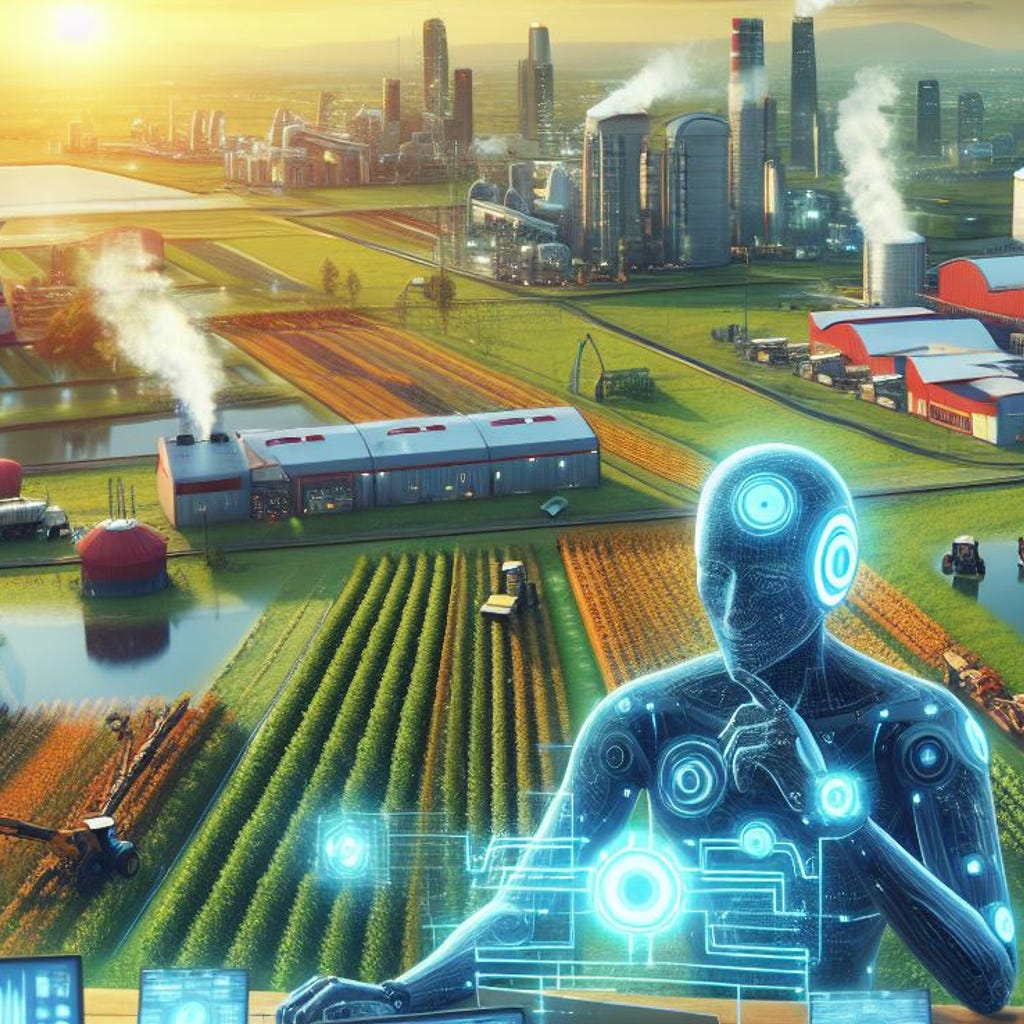Whether it happens within a decade or a century, it seems all but inevitable that AI will outpace humans in terms of cognitive capabilities in virtually all meaningful ways. If we’re able to stick the landing and develop an AI that is generally aligned with our interests we’re going to need to figure our what to do with the time and energy we previously devoted to simply making a living.
The End of Work?
Discussions of advanced AI often center around a future where artificial intelligence usurps the traditional human workforce. Many envision a landscape where robots and algorithms handle everything from menial tasks to complex decision-making, leaving us to question the role of humanity in an AI-dominated era. Many have suggested that humans will simply focus on hobbies and other forms of entertainment without meaningfully contributing, but I don’t think this is the most likely outcome.
As best I can guess, we’re happiest when we feel like we’re needed and making meaningful contributions, and I think there will still be a place for that even in a world where AI can outperform us on every cognitive task.
Will Our Future Be Democratic?
A future where a democratic humanity is in the driver’s seat is far from guaranteed and decisions being made today influence the order of tomorrow.
For most of us, whether we have a role in shaping the future depends on how AI prioritization is determined. If advanced AI is controlled by non-democratic means, whether through misaligned AI, AI-empowered dictatorship, or corporate oligarchy where decisions are made by a few powerful entities, then the average person may have little to no influence over AI's direction and have limited opportunities to make contributions that they find meaningful.
However, if we are successful in establishing democratic AI governance, the landscape shifts dramatically. AI becomes a tool for societal advancement and enrichment, democratically guided by the collective will. Opening the opportunity for all of humanity to participate in one of the most interesting and meaningful things imaginable: guiding the decision-making process surrounding AI prioritization.
Contemplation and Prioritization as Vocation
The future isn't just about who does the job faster or better; it's also about aligning these capabilities with our values. Our most significant responsibility won't be competing with AI, but rather in deciding what should be done. This role transcends mere oversight; it's about guiding AI to serve collective human interests.
While priorities like achieving universal food security and comprehensive healthcare might dominate the initial phases of AI integration, we’ll still have to make decisions about which priorities to focus on first, and the horizon extends far beyond our foundational goals.
Consider the dilemma of resource allocation in healthcare research. Should we prioritize the pursuit of a cure for a common, yet non-fatal ailment that currently has manageable treatments, knowing the chances of success are high? Or, should our focus be directed towards a less common, but potentially deadly disease, where the path to a cure is uncertain and the likelihood of breakthroughs is lower? This decision involves weighing the broader impact against the severity and the feasibility of successful outcomes and different people will have different values. Taking the time to come to the best decision we can for questions like these could be among the most important and meaningful things we could do.
Always More To Do
As our basic needs are met and exceeded, the canvas of human endeavor broadens to more intricate and contentious domains - be it space exploration or unraveling the mysteries of fundamental physics. In these realms, the cognitive prowess of AI, however advanced, will still be tethered to the trade-offs and decisions set by human direction.
This paradigm necessitates a continuous journey of education and awareness for us all. Keeping up with technological advancements, understanding the capabilities and limits of AI, and fostering an informed perspective will be crucial in making sound, ethical decisions about the course we chart.
While some may be content to live a life of games and hobbies, individuals who choose to do more will be able to advocate for one course of action over another, persuading and rallying others to their cause, in a world where convincing fellow humans about a particular AI-driven initiative will be as important as the initiatives themselves.
Conclusion
As AI evolves and surpasses human cognitive abilities, if AI is subject to democratic governance, our role will transform but not diminish. We will be the custodians of values and the guiding force behind AI's capabilities. In this future, our worth will not be measured by our ability to compete with AI but by our capacity to guide it in creating a world that reflects the best of humanity. Our challenge, and indeed our greatest opportunity, lies in embracing this role, ensuring that as AI grows in power, it remains a force for the collective good.
In a future where AI can do all jobs, our most important job may well be to decide what jobs AI should do and why. This isn't a diminished role; it's a promotion, and it's uniquely ours.


